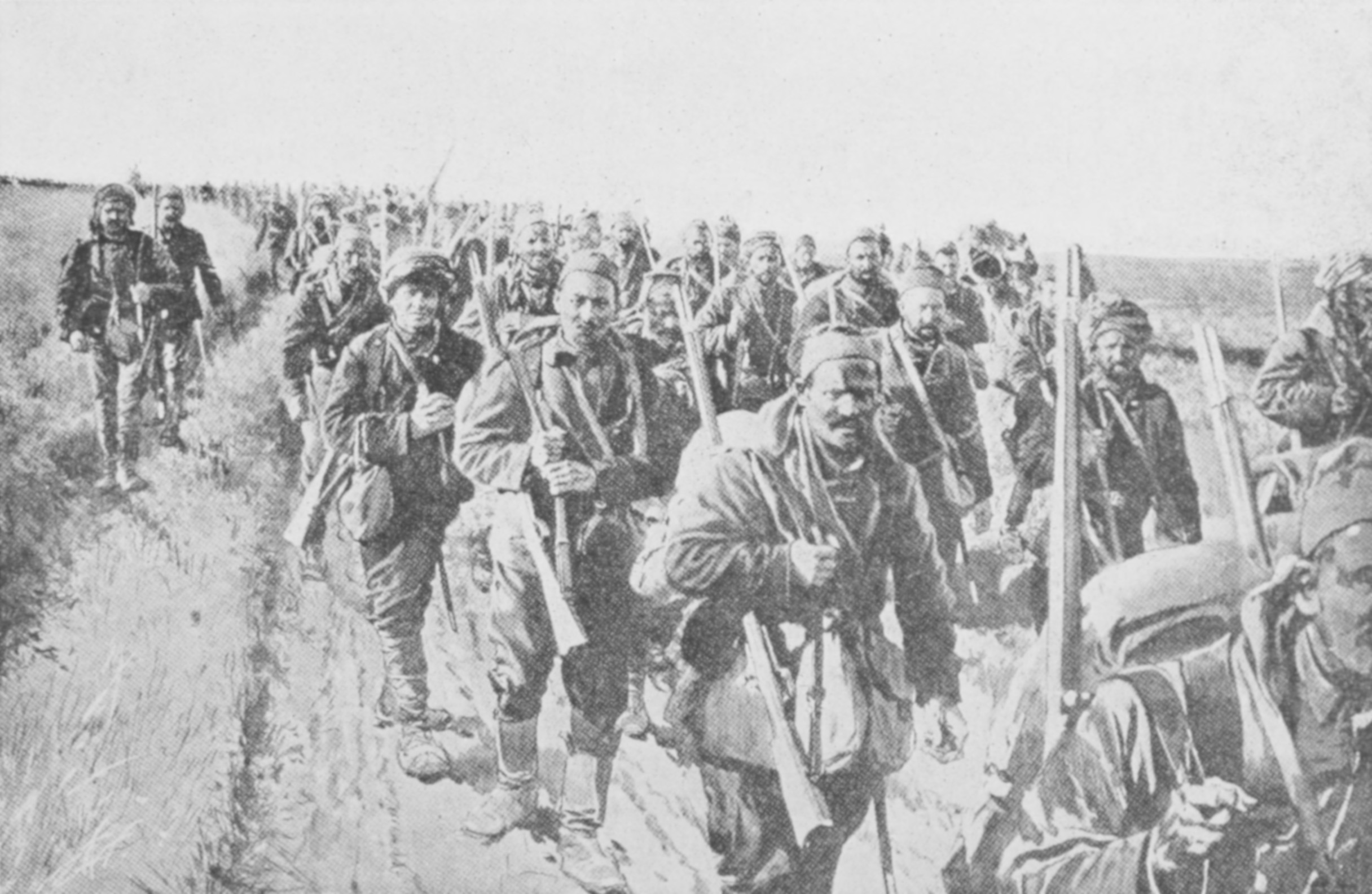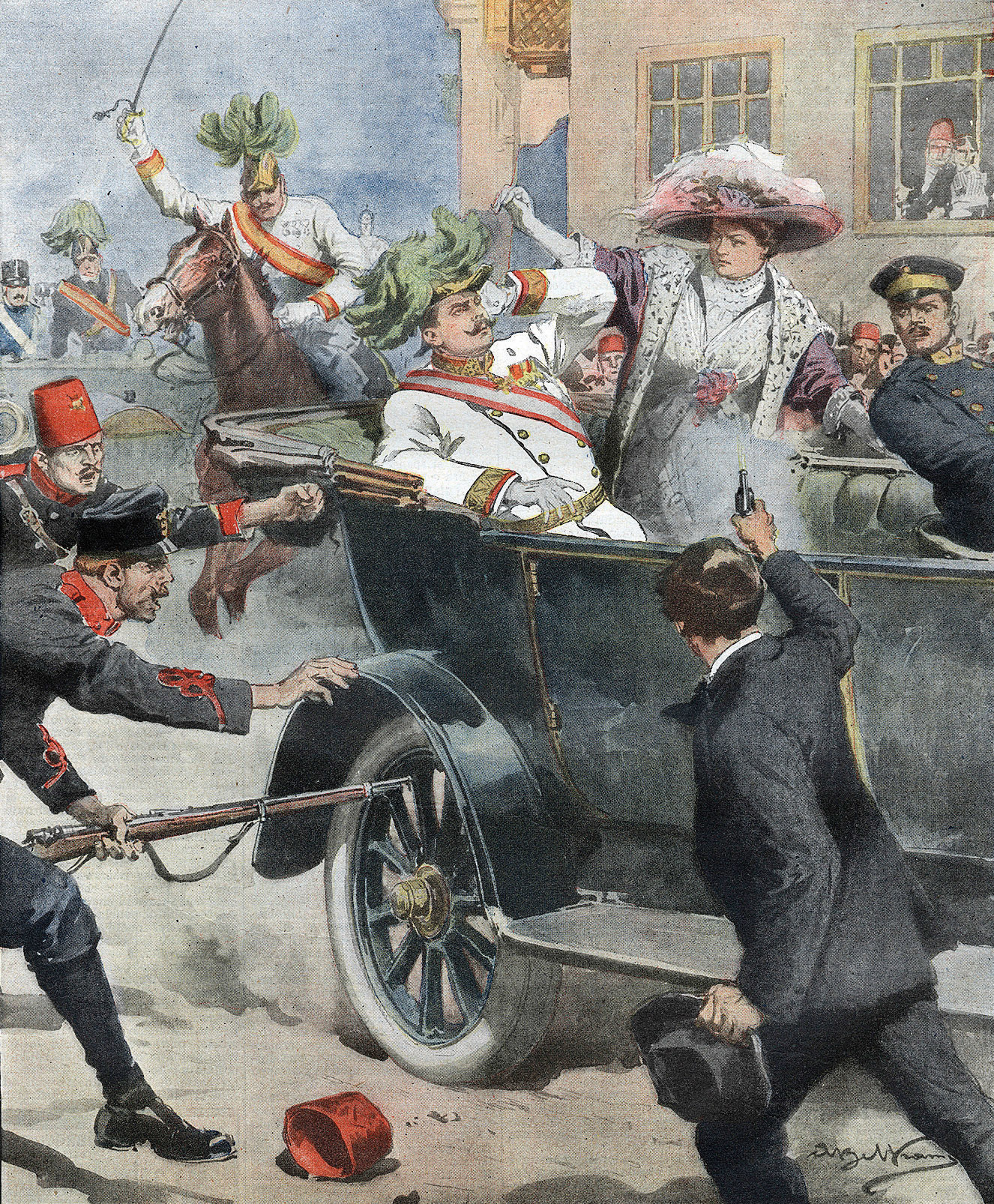|
Kosta Vojinović
Kosta Vojinović ( sr-cyr, Коста Војиновић, 13 May 1891 – 23 December 1917), known by his nickname ''Kosovac'' (Косовац), was a Serbian soldier who fought in the Balkan Wars and World War I, most notably as a leader of the Toplica Uprising. Life Vojinović was born in Smederevo, Kingdom of Serbia, to parents who had fled from the Vučitrn area in Kosovo, due to Albanian '' zulum'' (exploitation, oppression, wrongdoing), the region at the time being part of the Ottoman Empire. He came from a respected family, his father Jovan having finished military school in Russia and upon returning to Serbia he worked as a state clerk of the general tax administration, and later was the president of a municipality in Kosovska Mitrovica up until World War I. His mother Sofija died while he was young, and he never accepted his step-mother, he thus mostly lived with his mother's family, mostly at his uncle Panta Grujić, a high-ranking Serbian army officer (who was a comman ... [...More Info...] [...Related Items...] OR: [Wikipedia] [Google] [Baidu] |
Smederevo
Smederevo ( sr-Cyrl, Смедерево, ) is a list of cities in Serbia, city and the administrative center of the Podunavlje District in eastern Serbia. It is situated on the right bank of the Danube, about downstream of the Serbian capital, Belgrade. According to the 2022 census, the city has a population of 59,261, with 97,930 people living in its administrative area. Its history starts in the 1st century BC, after the conquest of the Roman Empire, when there existed a settlement by the name of Vinceia. The modern city traces its roots back to the Late Middle Ages when it was the capital (1430–39, and 1444–59) of the last Serbian Despotate, independent Serbian state before Ottoman Empire, Ottoman conquest. Smederevo is said to be the city of iron ( sr-Cyrl-Latn, гвожђе, gvožđe, separator=" / ", label=none) and grapes ( sr-Cyrl-Latn, грожђе, grožđe, separator=" / ", label=none). Names In Serbian language, Serbian, the city is known as ''Smederevo'' ... [...More Info...] [...Related Items...] OR: [Wikipedia] [Google] [Baidu] |
Savatije Milošević
Savatije Milošević ( sr-cyr, Саватије Милошевић; 1876 – 1905), known as Vojvoda Savatije, was a Serbian hajduk and Chetnik commander. Life Early life Savatije Miličević Milošević (Саватије Миличевић Милошевић) was born in Pavlica, Raška, at the time part of the Ottoman Empire (today Serbia). At the age of 25, Milošević murdered Pavle Jasnić, a chief of a ''srez'' (municipality) in Raška, because of a blood feud, and joined the hajduks (brigands) with whom he was active in the Ottoman Empire. He found refuge in Peć, Kosovo Vilayet, at the house of Albanian kachak Mula Zeka. name="SrejovićGavrilović1983">cite book, author1=Dragoslav Srejović, author2=Slavko Gavrilović, author3=Sima M. Ćirković, title=Istorija srpskog naroda: knj. Od Berlinskog kongresa do Ujedinjenja 1878-1918 (2 v.), url=https://books.google.com/books?id=L75BAAAAYAAJ, year=1983, publisher=Srpska književna zadruga, quote=Међутим, по изве ... [...More Info...] [...Related Items...] OR: [Wikipedia] [Google] [Baidu] |
Serbian Military Personnel Of World War I
Serbian may refer to: * Pertaining to Serbia in Southeast Europe; in particular **Serbs, a South Slavic ethnic group native to the Balkans ** Serbian language ** Serbian culture **Demographics of Serbia, includes other ethnic groups within the country *Pertaining to other places **Serbia (other) **Sorbia (other) *Gabe Serbian (1977–2022), American musician See also * * * Sorbs * Old Serbian (other) Old Serbian may refer to: * someone or something related to the Old Serbia, a historical region * Old Serbian language, a general term for the pre-modern variants of Serbian language, including: ** the Serbian recension of Old Church Slavonic la ... {{Disambiguation Language and nationality disambiguation pages ... [...More Info...] [...Related Items...] OR: [Wikipedia] [Google] [Baidu] |
Besa (Albanian Culture)
Besa ( Albanian indefinite form: ) is an Albanian cultural precept, usually translated as "pledge of honor", "solemn faith" or "solemn oath", that means "to keep the promise" and "word of honor", regarded as something sacred and inviolable. ''Besa'' is of prime importance as a cornerstone of personal and social conduct in the Albanian traditional customary law ('' Kanun''), which has directed all the aspects of Albanian tribal society. The Albanian adjective ''besnik'', derived from besa, means "faithful", "trustworthy", i.e. one who keeps his ''word''. Besnik for men and Besa for women continue to be popular names among Albanians. Etymology The Albanian word ''besa'' is an Indo-European cognate and shares similarities with the Classical Latin word ''fides''. In Late Antiquity and the Medieval period, Latin ''fides'' took on the Christian meaning of 'faith' or '(religious) belief,' a sense that persists in modern Romance languages and was borrowed into Albanian as '' feja''. ... [...More Info...] [...Related Items...] OR: [Wikipedia] [Google] [Baidu] |
Central Powers
The Central Powers, also known as the Central Empires,; ; , ; were one of the two main coalitions that fought in World War I (1914–1918). It consisted of the German Empire, Austria-Hungary, the Ottoman Empire, and the Kingdom of Bulgaria; this was also known as the Quadruple Alliance., , , The Central Powers' origin was the Dual Alliance (1879), alliance of Germany and Austria-Hungary in 1879. Despite having nominally joined the Triple Alliance (1882), Triple Alliance before, Kingdom of Italy, Italy did not take part in World War I on the side of the Central Powers and later joined on the side of the Allies of World War I, Allies. The Ottoman Empire and Bulgaria did not join until after World War I had begun. The Central Powers faced, and were defeated by, the Allied Powers, which themselves had formed around the Triple Entente. They dissolved in 1918 after they lost the war. Name The name 'Central Powers' is derived from the location of its member countries. All f ... [...More Info...] [...Related Items...] OR: [Wikipedia] [Google] [Baidu] |
Battle Of Kolubara
The Battle of Kolubara ( sr-Cyrl, Колубарска битка, ) was fought between Austria-Hungary and Serbia in November and December 1914, during the Serbian Campaign of 1914. It commenced on 16 November, when the Austro-Hungarians under the command of Oskar Potiorek reached the Kolubara river during their third invasion of Serbia that year, having captured the strategic town of Valjevo and forced the Serbian army to undertake a series of retreats. The Serbs withdrew from Belgrade on 29–30 November, and the city soon fell under Austro-Hungarian control. On 2 December, the Serbian army launched a surprise counterattack all along the front. Valjevo and Užice were retaken by the Serbs on 8 December. The Austro-Hungarians retreated to Belgrade, which 5th Army commander Liborius Ritter von Frank deemed untenable. The Austro-Hungarians abandoned the city between 14 and 15 December and retreated into Austria-Hungary, allowing the Serbs to retake their capital the followi ... [...More Info...] [...Related Items...] OR: [Wikipedia] [Google] [Baidu] |
July Crisis
The July Crisis was a series of interrelated diplomatic and military escalations among the Great power, major powers of Europe in mid-1914, Causes of World War I, which led to the outbreak of World War I. It began on 28 June 1914 when the Serbs of Bosnia and Herzegovina, Bosnian Serb nationalist Gavrilo Princip assassinated Archduke Franz Ferdinand of Austria, Archduke Franz Ferdinand, heir presumptive to the Austria-Hungary, Austro-Hungarian throne, and his wife Sophie, Duchess of Hohenberg. A complex web of alliances, coupled with the miscalculations of numerous political and military leaders (who either regarded war as in their best interests, or felt that a general war would not occur), resulted in an outbreak of hostilities amongst most of the major European states by early August 1914. Following the murder, Austria-Hungary sought to inflict a military blow on Kingdom of Serbia, Serbia, to demonstrate its own strength and to dampen Serbian support for Yugoslavism, Yugoslav ... [...More Info...] [...Related Items...] OR: [Wikipedia] [Google] [Baidu] |
Treaty Of London (1913)
The Treaty of London (1913) was signed on 30 May following the London Conference of 1912–1913. It dealt with the territorial adjustments arising out of the conclusion of the First Balkan War. The London Conference had ended on 23 January 1913, when the 1913 Ottoman coup d'état took place and Ottoman Grand Vizier Kâmil Pasha was forced to resign. Coup leader Enver Pasha withdrew the Ottoman Empire from the Conference, and the Treaty of London was signed without the presence of the Ottoman delegation. Combatants The combatants were the victorious Balkan League (Serbia, Greece, Bulgaria, and Montenegro) and the defeated Ottoman Empire. Representing the Great Powers were the United Kingdom, Germany, Russia, Austria-Hungary, and Italy. History Hostilities had officially ceased on 2 December 1912, except for Greece that had not participated in the first truce. Three principal points were in dispute: * the status of the territory of present-day Albania, the vast majority of w ... [...More Info...] [...Related Items...] OR: [Wikipedia] [Google] [Baidu] |
First Balkan War
The First Balkan War lasted from October 1912 to May 1913 and involved actions of the Balkan League (the Kingdoms of Kingdom of Bulgaria, Bulgaria, Kingdom of Serbia, Serbia, Kingdom of Greece, Greece and Kingdom of Montenegro, Montenegro) against the Ottoman Empire. The Balkan states' combined armies overcame the initially numerically inferior (significantly superior by the end of the conflict) and strategically disadvantaged Ottoman armies, achieving rapid success. The war was a comprehensive and unmitigated disaster for the Ottomans, who lost 83% of their European territories and 69% of their European population.''Balkan Savaşları ve Balkan Savaşları'nda Bulgaristan'' Süleyman Uslu As a result of the war, the League captured and partitioned al ... [...More Info...] [...Related Items...] OR: [Wikipedia] [Google] [Baidu] |


